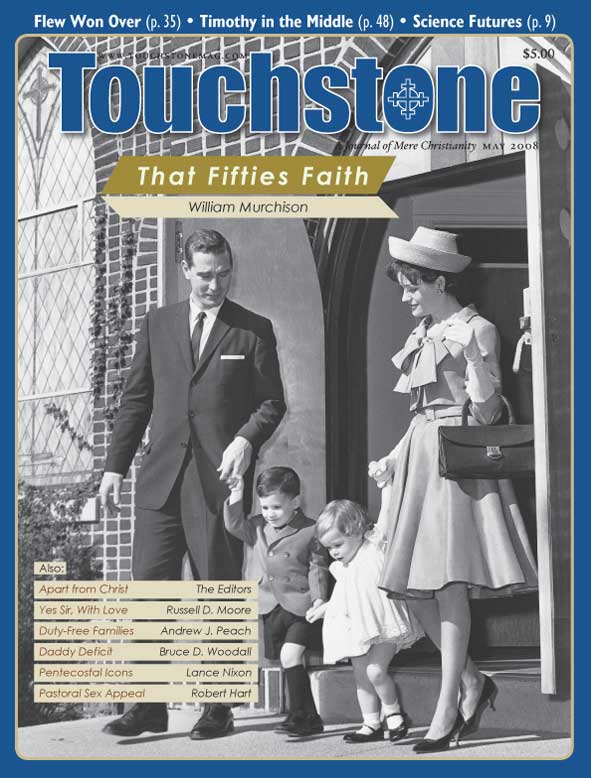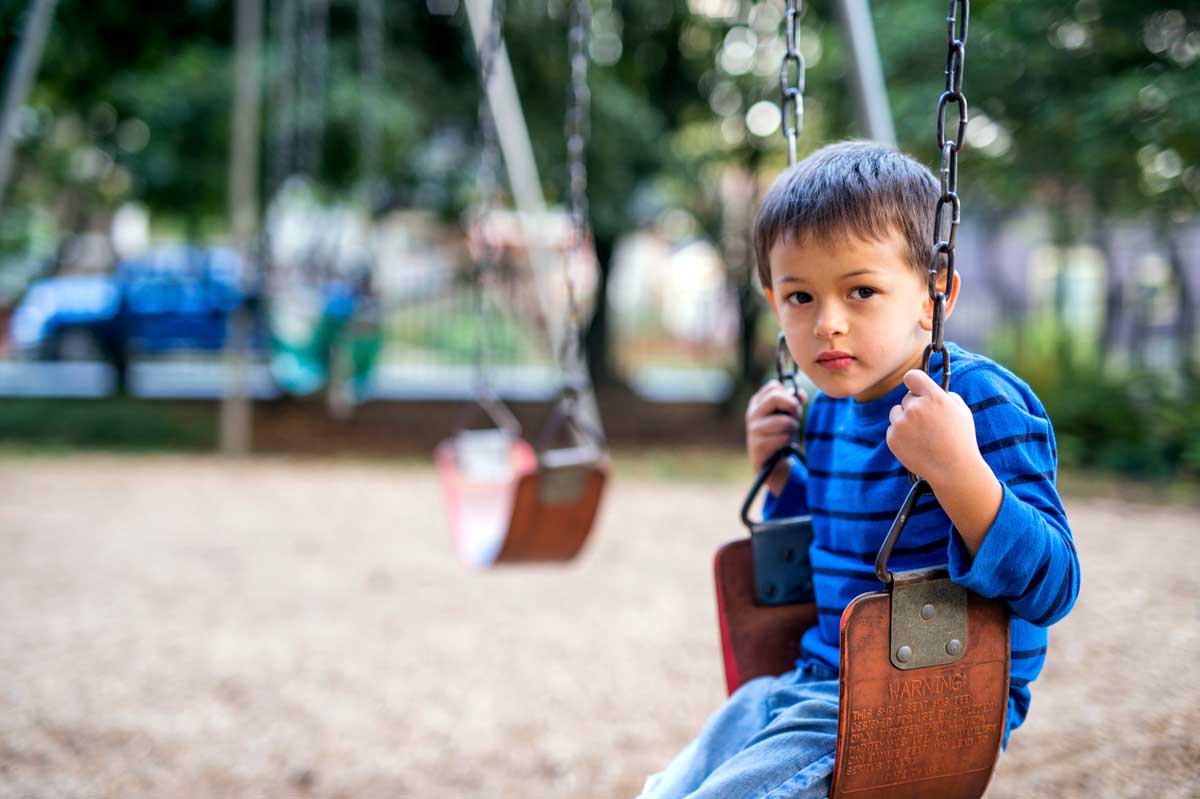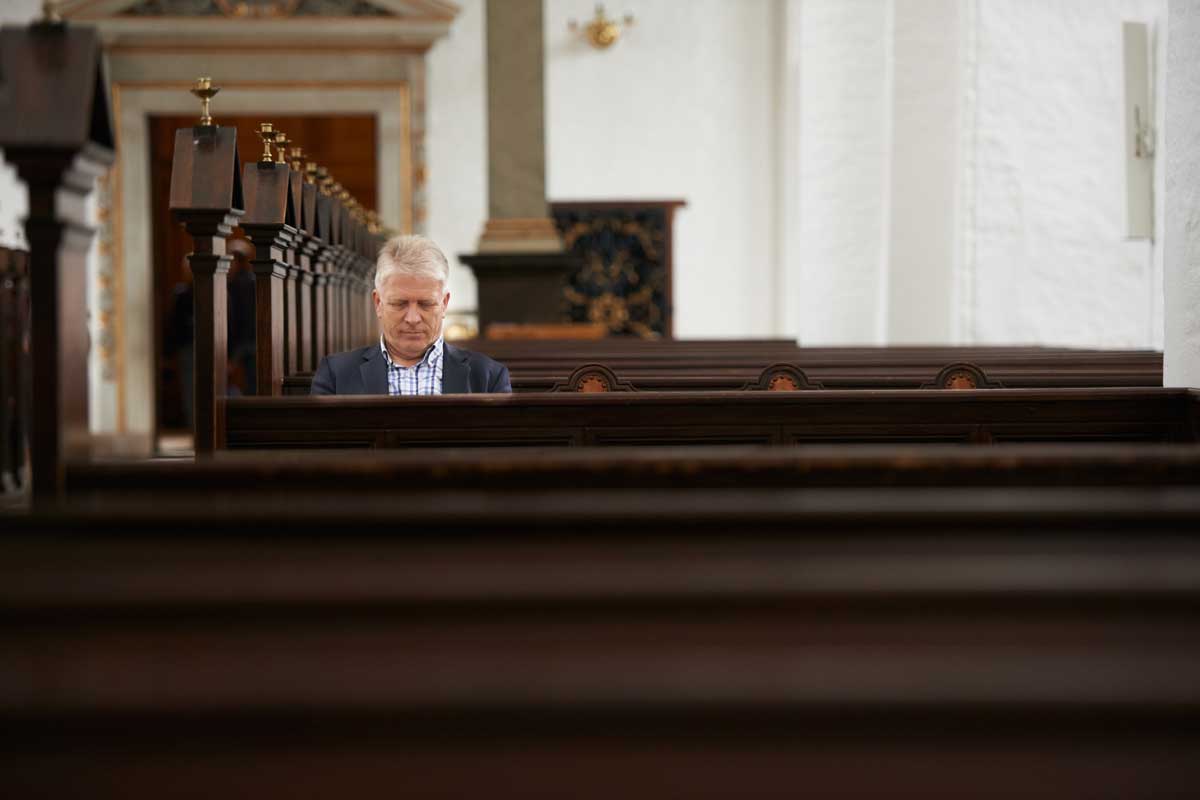View
Attention Deficit
Bruce D. Woodall on the Absence That Ritalin Can’t Cure
Thankfully, it was the last of 28 encounters for the day, so I didn’t have to worry about falling further behind in our busy medical practice. I closed the door to my office, rested my elbows on my cluttered desk, buried my face in my hands, and wished for a different job.
Sixteen years out of residency I am still waiting for the following scenario: A boy is brought into my office by two parents who are married and living together with their children—a family in which the father is an adult, is employed full time, and is the young patient’s legal parent by either natural birth or adoption—and the parents together wish me to prescribe Ritalin for their son’s Attention Deficit Hyperactivity Disorder.
Cries for Help
Today, I entered the room to meet a quiet and reserved small boy accompanied by his single mom. Occasionally I see a single dad and occasionally a small girl, but most often by far the people waiting are a lone mother and her son.
The pair today was, in a common variation, accompanied by a grandmother who keeps the boy when he’s not in school and his mother is still at work. The mother was sincerely exasperated to the point of tears, grandma supporting her observations, and they brought notes from school that, while trying to sound objective and clinical, were thinly veiled cries for help from a teacher who hopes I understand that she has at least thirty other kids to worry about.
Junior, they all say, is a monster, a demon. He’s a bad student, rowdy, defiant, cruel to animals and other children, wantonly destructive, and impossible to reason with. He’s been tested by the school psychologist, and his mother has even taken a parenting class (typically, it seems, such classes are taught by a twenty-something feminist who would never violate politically correct sensibilities regarding non-traditional families).
The family are, they assure me, coming to me as a last resort. If I can’t help them control the boy with medications, they don’t see how they will cope any longer. Yes, they’ve already addressed his diet and exercise, his bedtime schedule, his TV watching, and anything else they can adjust. Pharmacology is the only card left in the hand, and that’s why they are in my office.
What do I do? It seems that requests for boys to be on Ritalin are escalating at the same rate as requests for adolescent girls to be placed on antidepressants. When will we, as a culture, face the fact that the empirical evidence is pointing at a particular root issue?
We cannot measure a “daddy level” in the bloodstream of a child the way we can measure drug levels, but I wish we could. Maybe then we’d have hard data to support the anecdotal evidence I and other clinicians gather every day: Traditional families, like all human endeavors, have their challenges and shortcomings, yet when compared to single-parent families, they demonstrate that there is something magical about the presence of a stable and functional father in a child’s life.
When Dad is not there—“there” as in living there in the home—something deep in a child’s psyche perceives a critical deficit, a desperate and frightening imbalance that preys on the child’s particular vulnerabilities, causing him to careen off into unhealthy extremes.
Articulate Children
Being unsophisticated (sometimes an advantage), children cannot give voice to their anxieties on the psychiatrist’s couch. They don’t reflect. Instead they react, on a primitive, impulsive level.
But I believe that they are articulating well if we are willing to listen. The rise of the Ritalin and antidepressant culture in children and teens suggests to me that the message is often “ I need my daddy! I need the sound of his voice as I settle down to sleep at night. I need his reassuring touch when I awake in the morning. I need the security of knowing that he is there with my mother and me, providing for us, protecting us, and loving us. I just need him.”
Boys are difficult, and some boys are certainly more difficult than others, and some are difficult no matter where they are or with whom they live. The same can be said for adolescent girls. There are, without doubt, stable two-parent families with children who need behavior-modifying medication, but judging by the experience of my colleagues and myself, such cases are rare.
In part, no doubt, it’s simply that an involved father in the home gives sufficient support and perspective to the mother that, together, they can keep the family sane without reaching for a pill bottle. But I think there’s more to it than mothers needing husbands; I think children need fathers.
Medicine has taught me a lot about chemistry, including a lot about its limitations. I felt that strongly today as I reluctantly did what I usually do. After taking a history and performing an exam, after looking for some correctable explanation, I wrote the prescription for the drug and scheduled a follow-up appointment.
I’d rather have sent the child home to his daddy. •
subscription options
Order
Print/Online Subscription

Get six issues (one year) of Touchstone PLUS full online access including pdf downloads for only $39.95. That's only $3.34 per month!
Order
Online Only
Subscription

Get a one-year full-access subscription to the Touchstone online archives for only $19.95. That's only $1.66 per month!
bulk subscriptions
Order Touchstone subscriptions in bulk and save $10 per sub! Each subscription includes 6 issues of Touchstone plus full online access to touchstonemag.com—including archives, videos, and pdf downloads of recent issues for only $29.95 each! Great for churches or study groups.
Transactions will be processed on a secure server.
more on fatherhood from the online archives
more from the online archives
calling all readers
Please Donate
"There are magazines worth reading but few worth saving . . . Touchstone is just such a magazine."
—Alice von Hildebrand
"Here we do not concede one square millimeter of territory to falsehood, folly, contemporary sentimentality, or fashion. We speak the truth, and let God be our judge. . . . Touchstone is the one committedly Christian conservative journal."
—Anthony Esolen, Touchstone senior editor













